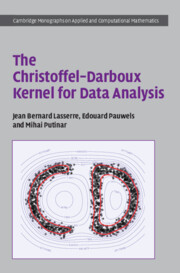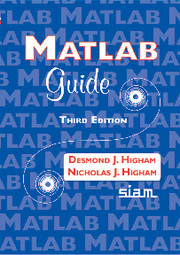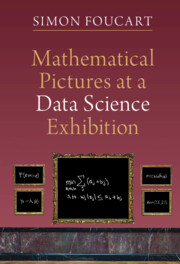Tensor Decompositions for Data Science
Tensors are essential in modern day computational and data sciences. This book explores the foundations of tensor decompositions, a data analysis methodology that is ubiquitous in machine learning, signal processing, chemometrics, neuroscience, quantum computing, financial analysis, social science, business market analysis, image processing, and much more. In this self-contained mathematical, algorithmic, and computational treatment of tensor decomposition, the book emphasizes examples using real-world downloadable open-source datasets to ground the abstract concepts. Methodologies for 3-way tensors (the simplest notation) are presented before generalizing to d-way tensors (the most general but complex notation), making the book accessible to advanced undergraduate and graduate students in mathematics, computer science, statistics, engineering, and physical and life sciences. Additionally, extensive background materials in linear algebra, optimization, probability, and statistics are included as appendices.
- Allows different readers to focus on the areas most relevant to them by separating the developments of the algorithmic kernels for tensor decompositions from the algorithms and applications and developing the algorithms independently in their own chapters
- Better equips students and researchers to conduct work in the field by lowering the notational and background barriers
- Includes examples based on real-world open source datasets so that readers can understand the practical applications and have access to data for their own experiment
Reviews & endorsements
'Tensor Decompositions for Data Science by Grey Ballard and Tamara G. Kolda is a much-needed contribution to the field of tensor analysis. This book starts from ground zero and carefully builds up to the core tensor decompositions for data science, with just the right amount of intuition and several practical exercises. This book presents a carefully designed, clear, and intuitive system of notation that will become the standard notation for tensors, making an intimidating subject approachable for new researchers. It will serve as an excellent reference for an advanced undergraduate or early graduate course in tensor decompositions, as well as a trusted guide to tensor decompositions for working researchers.' Rachel Ward, University of Texas at Austin
'Tensors arise naturally in many applications but proper handling of them can be exceedingly difficult compared to matrices. This book provides a deep understanding of how to work with tensors, while also being accessible to students. On top of that the mathematical typesetting is delightfully precise and readable, while each concept has exactly the right Tikz illustration.' Art Owen, Stanford University
'Ballard and Kolda masterfully lay out a step-by-step introduction to tensor decomposition methods, combining mathematical rigor with practical applications across disciplines. Tensor Decompositions for Data Science stands out not only as an excellent course companion, but also as an inspiring reference for data scientists and engineers committed to advancing their analytic toolkit.' Alex Williams, New York University
'Tensor Decompositions for Data Science is an essential contribution to the growing field of tensor methods, presenting a comprehensive and accessible resource for both students and professionals in data science, applied mathematics, and machine learning. Grey Ballard and Tamara G. Kolda offer an in-depth exploration of tensor algebra, decompositions, and their applications across a range of complex data analysis challenges. The authors' structured approach demystifies the mathematics behind tensors, making this book an invaluable tool for understanding the fundamental principles and practical applications of tensor decompositions. With clear explanations, detailed examples, and a balanced focus on theory and application, Ballard and Kolda have crafted a definitive guide that will serve as both an instructional text and a reference for advanced practitioners. This book is a timely and powerful addition to the literature on high-dimensional data processing, and it is certain to become a cornerstone for those seeking to leverage tensor decompositions in cutting-edge research and industry applications.' Jack Dongarra, University of Tennessee
'This book provides an accessible entry point into the realm of tensor decompositions, emphasizing practical algorithms, applications and approximations. It guides readers through the essential decompositions, inviting further exploration and setting them off on a wonderful journey into this fascinating field.' Nick Vannieuwenhoven, KU Leuven
'Tensors play a crucial role in numerous aspects of data science, including machine learning, computer vision, natural language processing, data compression, anomaly detection, social science, computational neuroscience, materials science, microbiology, and many others. This book provides an accessible yet thorough exploration of tensor representations for complex data. The authors meticulously cover key variants, foundational theories, and practical algorithms - making complex concepts understandable for readers at different levels of expertise.' Rebecca Willett, University of Chicago
Product details
No date availableHardback
9781009471671
419 pages
254 × 178 mm
Table of Contents
- Preface
- I. Tensor Basics:
- 1. Tensors and their subparts
- 2. Indexing and reshaping tensors
- 3. Tensor operations
- II. Tucker Decomposition:
- 4. Tucker decomposition
- 5. Tucker tensor structure
- 6. Tucker algorithms
- 7. Tucker approximation error
- 8. Tensor train decomposition
- III. CP Decomposition:
- 9. Canonical polyacidic (CP) decomposition
- 10. Kruskal tensor structure
- 11. CP alternating least squares (CP-ALS) optimization
- 12. CP gradient-based optimization (CP-OPT)
- 13. CP nonlinear least squares (CP-NLS) optimization
- 14. CP algorithms for incomplete or scarce data
- 15. Generalized CP (GCP) decomposition
- 16. CP tensor rank and special topics
- IV. Closing Observations:
- 17. Closing observations
- V. Review Materials: A. Numerical linear algebra
- B. Optimization principles and methods
- C. Some statistics and probability
- Bibliography
- Index.








